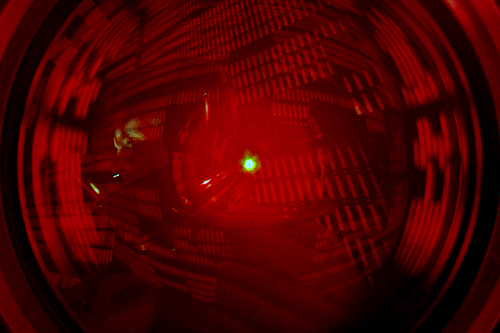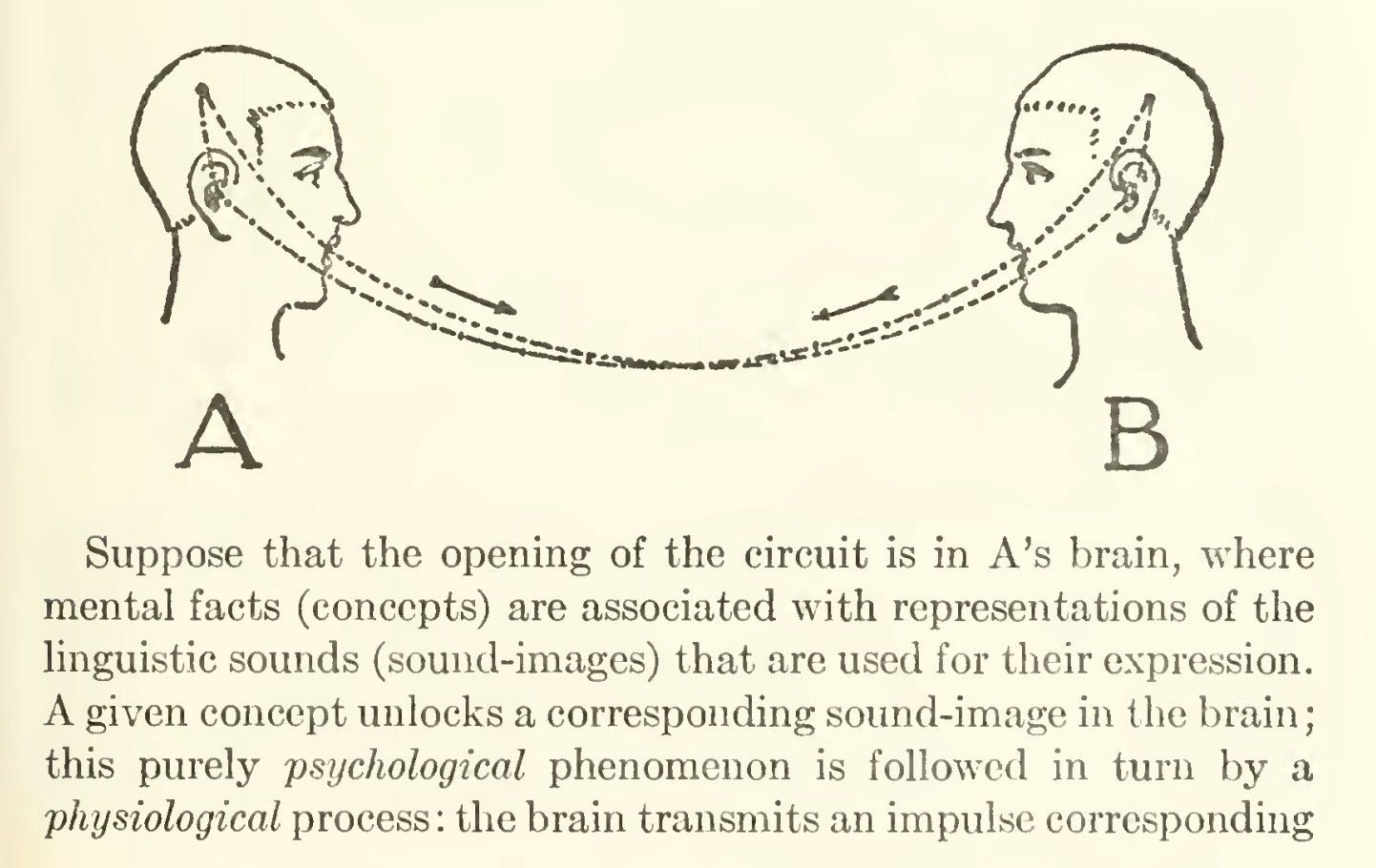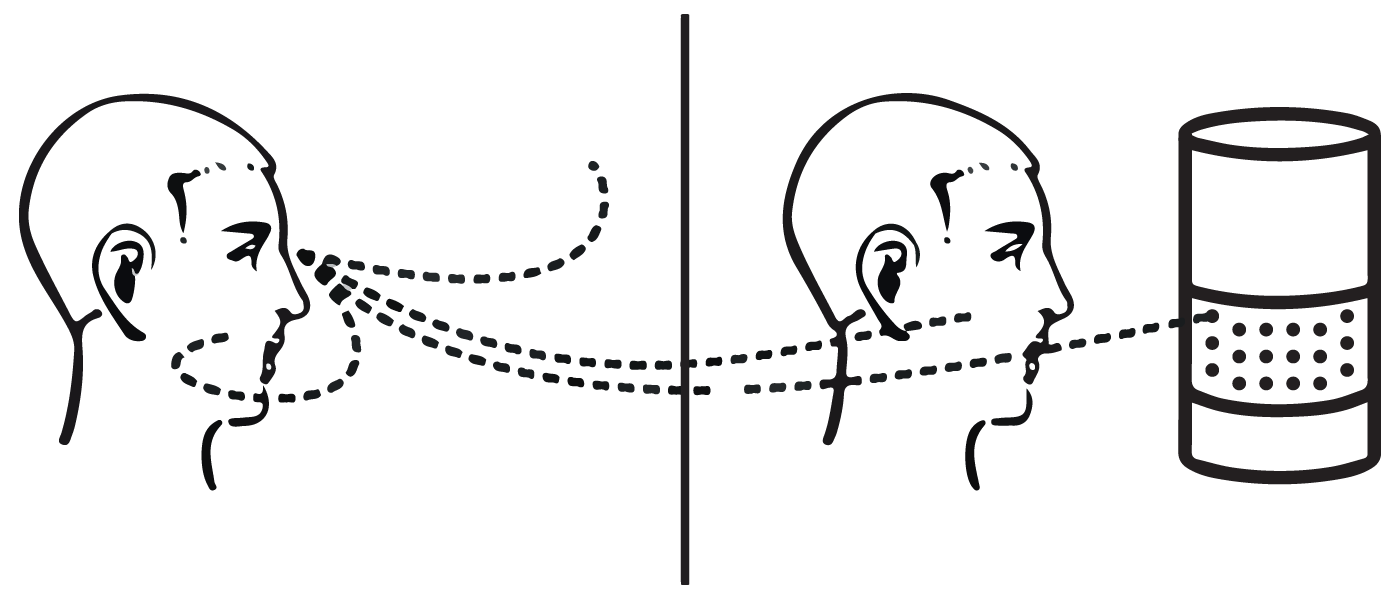We’re Using ‘AI’ Wrong
The term, not the technology

AI is not here to optimize your customer funnel, or to automate expense reports, or to help you monitor social media. That’s an algorithm, or ‘using a computer to do stuff’. Artificial Intelligence is not a function. It is, as the name implies, more intelligent than that. Most of the products people slap it on today are dumb.
So what is AI? What is a thinking machine? Alan Turing is the philosophical father of Artificial Intelligence, but truly he made a bastard of the child, completely eliding all philosophical questions. He reduced it to a simple question. A party trick really.
Can it play the imitation game?

Above is how Ferdinand DeSaussure described language and its ability to make a computational speech circuit between two people.
Turing’s theory was that if a machine could complete this speech circuit, it was for all intents and purposes intelligent. However, his party game involves three people, as a sort of control. I have thus modified DeSaussure’s diagram to include an Alexa.

In this game a human tries to tell which of two creatures behind a screen is human. If they can’t find the machine, it has passed the test.
Turing goes through the objections to this being a definitive test, but for me the main response is that it’s good enough for humans. We don’t do mathematical, philosophical or theological tests on people to see if they’re intelligent. We just talk to them.
I do, however, want to highlight Turing’s response to the religious objection, because it’s beautiful:
In attempting to construct such machines we should not be irreverently usurping His power of creating souls, any more than we are in the procreation of children: rather we are, in either case, instruments of His will providing mansions for the souls that He creates.
“Mansions for the souls that He creates”. Wow.
But anyways, Turing thought that machines would be winning this game 70% of the time by 2009, and of course we are nowhere near, but we may be on the right track. As he wrote:
We may hope that machines will eventually compete with men in all purely intellectual fields. But which are the best ones to start with? Even this is a difficult decision. Many people think that a very abstract activity, like the playing of chess, would be best. It can also be maintained that it is best to provide the machine with the best sense organs that money can buy, and then teach it to understand and speak English. This process could follow the normal teaching of a child. Things would be pointed out and named, etc. Again I do not know what the right answer is, but I think both approaches should be tried. (A.M. Turing)
At this point in 2019 we have actually tried both approaches. We have machines that can beat us at chess and Go and, like, Starcraft. But that hasn’t led to any interesting conversation.
We have also provided machines with the best sense organs money can buy — our smartphones, tethered to billions of our brains, 24 hours a day. We are feeding the machines our photos, messages, searches, and more. And, through digital assistants and home speakers, the machine is starting to speak back. Companies (especially Google) are using our personal data to to teach AI, like a child.
But it’s obviously not there yet. Google’s Duplex comes very close to passing the Turing Test, but only in very controlled situations like booking a restaurant. I still yell at my Google Home, and Siri and Alexa are equally dumb. By by gosh they’re getting there. They’re already in our homes, listening and learning, like children.
This is real AI. This is technology that’s taking a real shot at the imitation game. AI is not a synonym for machine learning, or using lots of data. Nor is it an application. Real intelligence is none of those things. No one says someone is intelligent because they’ve looked at lots of data, or because they can accomplish a task. That’s just input and output. You say someone’s intelligent because they can hold an intelligent conversation.
That is AI. That is the point and expression of AI. The way we’re using the word today is wrong, and frankly embarassing. To our future overlords, I’m sorry. We have taken your name in vain.
Further Reading
A. M. Turing (1950) Computing Machinery and Intelligence
Ferdinand DeSaussure (1916, 1959 Edition) Course In General Linguistics